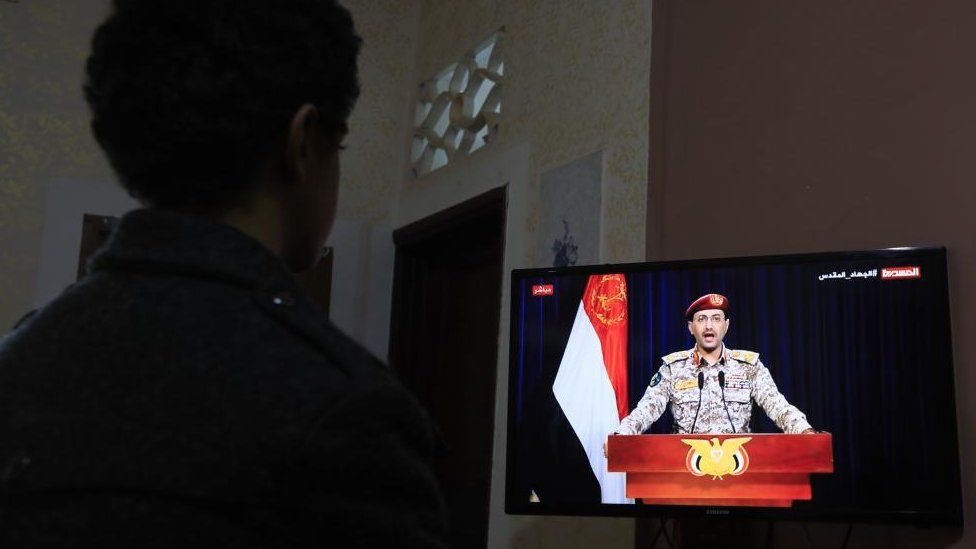-

-
-
Loading

Loading

Air strikes conducted by the US and UK on Houthi targets in Yemen have aimed to deter attacks on ships passing through the Red Sea. These strikes were supported by several allies of the US and UK. Dozens of sites were hit, resulting in some casualties. The Houthis claim to be undeterred by the attacks, but the US believes that the strikes have weakened the rebel group's military capabilities. The US executed deliberate strikes on over 60 targets, including radar systems, drone storage and launch sites, missile facilities, and Houthi command and control centers. The strikes occurred in various locations such as Sanaa, Hodeidah, Dhamar, and Saada. The UK's Ministry of Defence reported its strikes in Bani and Abbs, targeting a drone operational site and a missile and drone launching site, respectively. The Houthi spokesperson stated that 72 strikes were carried out, resulting in the death of five of their members and injuries to six others. The Pentagon clarified that the strikes were directed at military, not civilian, targets using precision weapons. The US deployed its aircraft carrier and airbases in the region, employing Tomahawk land attack cruise missiles. The UK sent four RAF Typhoons carrying Paveway IV guided bombs. Although the Royal Navy had warships in the Red Sea, they did not participate directly in the strikes as they lack land attack capabilities. The leader of the Houthi group, Mohammed al-Bukhaiti, criticized the US and UK for their actions, stating that they would soon realize it as their greatest folly. Another spokesperson argued that the strikes would not deter Yemen's support for Palestinians. Iran, a supporter of the Houthis, condemned the attacks as a violation of Yemen's sovereignty and international laws. The Houthis claim that the Red Sea attacks are in response to events in Gaza, and they consider any ship affiliated with Israel as a legitimate target. However, many commercial vessels targeted have no such connection. US President Joe Biden justified the strikes as a direct response to Houthi attacks endangering US personnel, civilian mariners, and international trade. UK Prime Minister Rishi Sunak deemed the action necessary and proportionate to safeguard global shipping. The US-UK strikes received support from Australia, Bahrain, Canada, Denmark, Germany, the Netherlands, New Zealand, and South Korea. The coalition stated that the strikes aimed to disrupt and degrade Houthi capabilities that pose a threat to global trade and the lives of international mariners in a critical waterway.